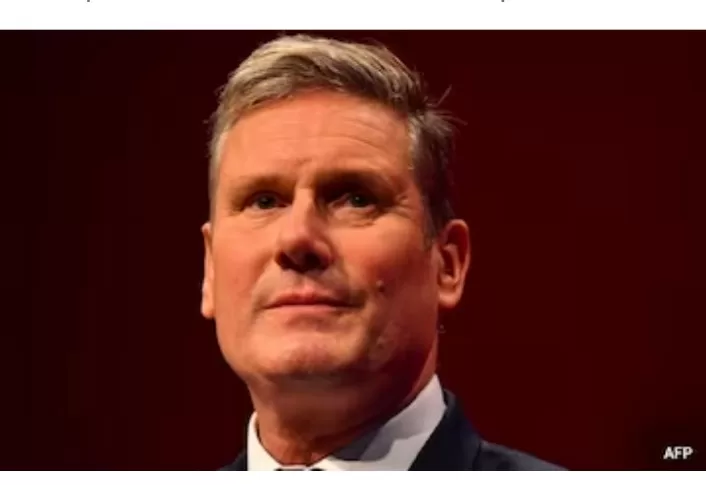London: Keir Starmer, a former human rights attorney, is currently on the trajectory to become the next Prime Minister of Britain, positioned as a pragmatic, dependable figure. When Starmer took the reins of the Labour Party three years ago following the tumultuous tenure of Jeremy Corbyn, his commitment was to unify the party and guide it back to the path of political influence.
At 61 years old, Starmer has successfully repositioned the main opposition party back to the center ground of politics, quelling dissent from the left and eradicating anti-Semitism within its ranks. This transformation has rendered the Labour Party a viable choice for the electorate.
Political scientist Karl Pike remarked, “He has undeniably positioned Labour in a place where it could secure victory in the forthcoming general election—a feat many believed to be ambitious and improbable.”
As Labour convenes for its annual conference in Liverpool, northwest England, this weekend, it enjoys a substantial double-digit lead in opinion polls, anticipating a general election in the coming year. The prevailing sentiment attributes this advantage largely to the chaotic governance of the Conservative Party, which has witnessed three different prime ministers in the span of four years, stemming from the upheaval surrounding Brexit and the COVID-19 pandemic.
Additionally, a cost-of-living crisis and ongoing strikes across various sectors have fueled a desire for change among Britons after 13 years of Conservative rule, rather than an overwhelming endorsement of Keir Starmer himself.
In fact, Starmer currently grapples with negative approval ratings, with critics highlighting his lack of inspirational oratory prowess compared to figures like Tony Blair. However, some argue that Starmer’s calculated persona as a sober, serious, and steady leader is precisely what the country needs after a period of political turbulence.
Born in London, Starmer grew up in a family of four siblings, with a toolmaker father and a nurse mother, both passionate animal advocates who even rescued donkeys. Starmer humorously remarked, “Whenever one of us left home, they replaced us with a donkey.” His distinctive first name pays homage to Labour’s founding father, Keir Hardie.
Starmer’s journey led him through violin lessons with Norman Cook, the former Housemartins bassist who later became DJ Fatboy Slim, during his school years. After pursuing legal studies at the universities of Leeds and Oxford, he dedicated himself to defending trade unions and activists opposing McDonald’s.
Tragedy struck in 2003 when Starmer embarked on a career within the establishment, tasked with ensuring police compliance with human rights legislation in Northern Ireland. Five years later, he assumed the role of director of public prosecutions for England and Wales during the Labour government’s tenure.
During his tenure from 2008 to 2013, Starmer oversaw high-profile prosecutions, including those of Members of Parliament for misuse of expenses, journalists involved in phone hacking, and youthful rioters during the 2011 unrest across England. His service earned him a knighthood from Queen Elizabeth II. In 2015, he was elected as a Member of Parliament, representing a left-leaning constituency in North London.
Tragically, just weeks before his election, Starmer’s mother succumbed to a rare joint ailment. In a poignant TV interview in 2021, he broke down in tears recounting how her agonizing death deeply affected his father.
In 2016, Starmer joined a rebellion by Labour MPs against Jeremy Corbyn’s perceived lack of leadership during the EU referendum campaign. Although unsuccessful, he returned to the top echelons of the party as Labour’s Brexit spokesman later that year, a role he retained until his ascendancy to party leadership in April 2020.
Critics have accused Starmer of indecision and failing to articulate a clear vision for the country, as he deviated from several pledges made during his leadership campaign, such as the promise to abolish university tuition fees.
Supporters argue that Starmer’s caution in revealing his full hand is a strategic move, awaiting the announcement of an election date before unveiling a comprehensive vision for the nation.
Dave Mullaney, a 54-year-old Labour party activist in Bristol, observed, “He probably is right to be cautious, but I think his moment is approaching, and we’ll witness more from him in the forthcoming months.”







